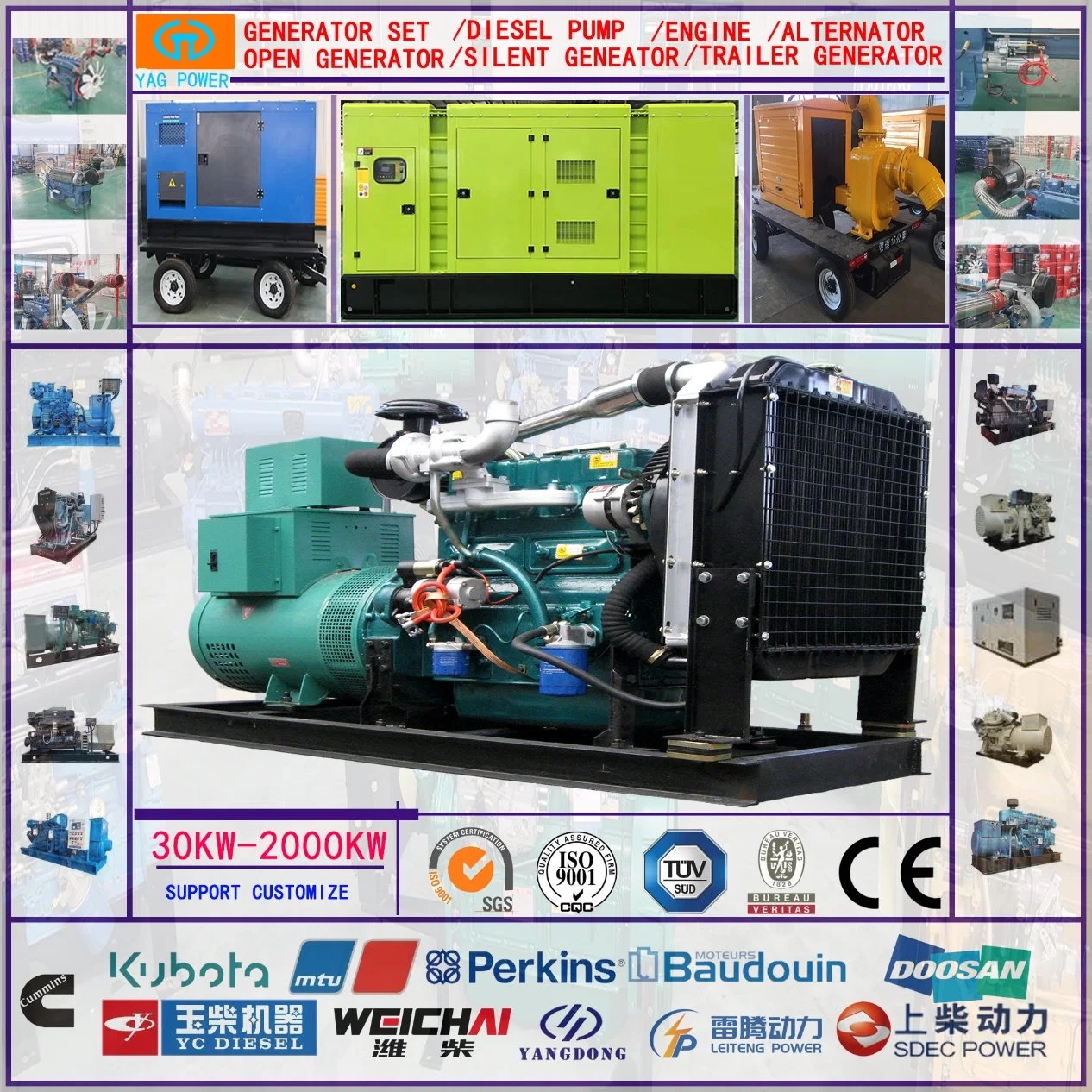Diesel Generators for Power Quality Improvement

Introduction
In today's modern world, a reliable and stable power supply is essential for various industrial, commercial, and residential applications. Power quality issues such as voltage fluctuations, harmonics, and power interruptions can lead to equipment damage, production downtime, and financial losses. To ensure a consistent and high-quality power supply, many organizations rely on diesel generators as an effective backup power solution. Diesel generators not only provide a reliable source of power during grid outages but also play a crucial role in improving power quality. This article explores the use of diesel generators for power quality improvement in various applications.
Understanding Power Quality
Power quality refers to the characteristics of the electrical power supply that enable electrical and electronic equipment to function properly. It encompasses various parameters such as voltage stability, frequency regulation, harmonic distortion, voltage sags, swells, and interruptions. Poor power quality can lead to equipment malfunction, data loss, and decreased efficiency in industrial processes. Power quality issues are often caused by grid instability, voltage variations, and harmonics generated by non-linear loads.
Diesel Generators as Backup Power Solution
Diesel generators are widely used as a backup power solution to ensure uninterrupted power supply during grid failures or blackouts. These generators operate on diesel fuel and are capable of generating electricity independently of the grid. Diesel generators are available in various sizes and capacities to meet the power requirements of different applications, ranging from small residential units to large industrial installations. The key advantages of diesel generators include reliability, durability, fuel efficiency, and quick start-up time.
Improving Power Quality with Diesel Generators
Diesel generators play a vital role in improving power quality by addressing common issues such as voltage fluctuations, frequency variations, and harmonic distortion. Here are some ways in which diesel generators help enhance power quality:
1. Voltage Regulation: Diesel generators are equipped with voltage regulators that ensure a stable and consistent output voltage. During grid disturbances or voltage fluctuations, diesel generators can quickly adjust their output voltage to maintain the desired level, thereby improving the overall voltage stability.
2. Frequency Regulation: In addition to voltage regulation, diesel generators also help in maintaining a stable frequency of the electrical supply. Fluctuations in the grid frequency can impact the performance of sensitive equipment, but diesel generators can provide a reliable source of power with a consistent frequency.
3. Harmonic Filtering: Diesel generators are capable of reducing harmonic distortion in the electrical system caused by non-linear loads such as variable speed drives, UPS systems, and electronic equipment. By providing clean and stable power, diesel generators help minimize the impact of harmonics on sensitive equipment and improve the overall power quality.
4. Voltage Support: During voltage sags or swells on the grid, diesel generators can provide voltage support to critical loads to prevent equipment damage or downtime. By automatically detecting 75KW Diesel Generator For Sale and switching to generator power, diesel generators ensure a seamless transition and maintain the reliability of the electrical supply.
Applications of Diesel Generators for Power Quality Improvement
Diesel generators are utilized in a wide range of applications to enhance power quality and ensure uninterrupted operations. Some of the key applications of diesel generators for power quality improvement include:
1. Data Centers: Data centers require a reliable and high-quality power supply to prevent data loss and maintain uninterrupted operations. Diesel generators are often used as backup power sources to support critical loads and provide voltage and frequency regulation to sensitive equipment.
2. Hospitals: Hospitals rely on continuous power supply to operate life-saving equipment, lighting, and HVAC systems. Diesel generators play a crucial role in providing backup power during emergencies and maintaining power quality to support critical medical devices.
3. Telecommunications: Telecommunication networks require a stable power supply to ensure uninterrupted communication services. Diesel generators are commonly used in mobile cell sites, data centers, and communication facilities to improve power quality and ensure reliable operations.
4. Manufacturing Plants: Manufacturing plants and industrial facilities depend on a stable power supply to operate production lines, machinery, and control systems. Diesel generators are deployed to provide backup power and enhance power quality to minimize downtime and production losses.
5. Commercial Buildings: Commercial buildings such as office complexes, shopping malls, and hotels require a reliable power supply for lighting, HVAC, elevators, and security systems. Diesel generators are installed as backup power sources to improve power quality and ensure uninterrupted operations during grid outages.
Conclusion
Diesel generators play a critical role in improving power quality and ensuring a reliable source of backup power for various applications. By providing voltage regulation, frequency stability, harmonic filtering, and voltage support, diesel generators help mitigate power quality issues and prevent equipment damage. Organizations across different sectors rely on diesel generators to maintain uninterrupted operations, protect critical equipment, and enhance overall power quality. As the demand for reliable power supply continues to grow, diesel generators will remain a valuable asset for power quality improvement in a wide range of industries and applications.

